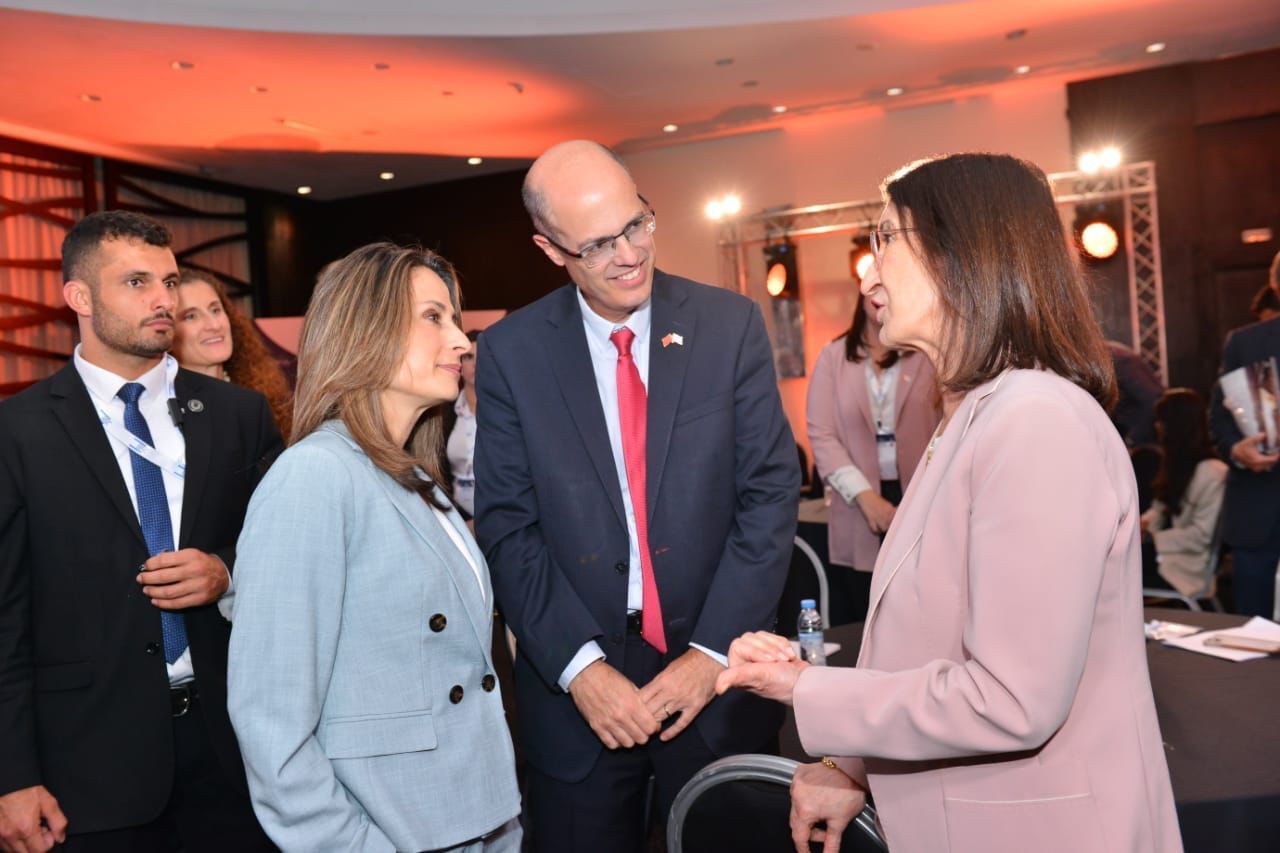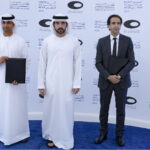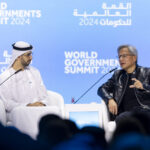Israeli technology minister mobilizes startups to reinforce normalization accords
Orit Farkash-Hacohen will sign a memorandum of understanding with her Moroccan counterpart on cooperative efforts in agricultural technologies, water management, water desalination, renewable energy and artificial intelligence

Start-Up Nation Central
Orit Farkash-Hacohen, left, talking with former Moroccan Energy Minister Amina Benkhadra and Start-Up Nation CEO Avi Hasson in Casablanca.
CASABLANCA, Morocco – From the Arab Gulf states to northern Africa, Israel is trying to sew up the normalization pacts it signed nearly two years ago by sharing its pioneering answers to drought, desertification and fossil-fuel replacement.
That’s what brought Orit Farkash-Hacohen, Israel’s minister of innovation, science and technology, to Morocco this week with a cohort of startup companies focused on addressing the region’s climate and energy nightmares.
“I’m here to say that Israel’s innovation, talent, our people and our minds can and should be a partner,” Farkash-Hacohen told an Israel-Moroccan business conference in Casablanca on Wednesday. “We are committed for this cooperation to succeed.” The conference was sponsored by Start-Up Nation Central, a nonprofit group that promotes Israeli technology companies.
The Israeli cabinet minister, a member of the Blue & White party in Prime Minister Naftali Bennett’s governing coalition, is scheduled to be in the capital city of Rabat on Thursday to sign a memorandum of understanding with her Moroccan counterpart, Abdellatif Miraoui, minister of higher education, scientific research and innovation. The broad agreement will cover cooperative efforts in agricultural technologies, water management, water desalination, renewable energy and artificial intelligence, Farkash-Hacohen said.
Her visit to Morocco follows a similar trip to the United Arab Emirates in October 2021 that covered joint activities in the realms of climate and energy, but also focused on cooperation between the two countries on space exploration, including Israel’s Beresheet 2 unmanned lunar landing mission.
“I hope this will echo a more moderate voice in the Middle East and in Africa,” Farkash-Hacohen told The Circuit in a brief interview on the sidelines of the conference. “We are facing a lot of extremists in our neighborhood. This is an alliance of the moderate countries.”
The 51-year-old minister, former chairwoman of the Israel Electric Authority, a regulatory body, and previously minister of strategic affairs, acknowledged that much of Israel’s new business ties with Arab countries follow years of defense cooperation.
“It’s no secret that a lot of the Israeli high-tech industry’s success stems from the army and the technology assets that we have,” Farkash-Hacohen said in the interview. “Our security industries have produced a lot of great ideas that transfer to commercial industry. We see that in space and telecommunications. We see that in cyber. I think that now we should share that expertise with our friends.”
Moroccan officials agreed that Israel’s technological prowess is attractive to them. Three cabinet ministers attended the first day of the Casablanca conference; Morocco’s former energy minister, Amina Benkhadra, said the two countries should make good partners.“We are facing the same challenges of desertification, water security and climate change impact,” said Benkhadra, now director of the National Office of Hydrocarbons and Mines. “We are aware that Israel has a lot of capabilities in many sectors so I think this partnership can be very fruitful,” she told The Circuit, adding, “You have to seize opportunities in this world of crisis.”
The Circuit attended the conference as a guest of Start-Up Nation Central.










